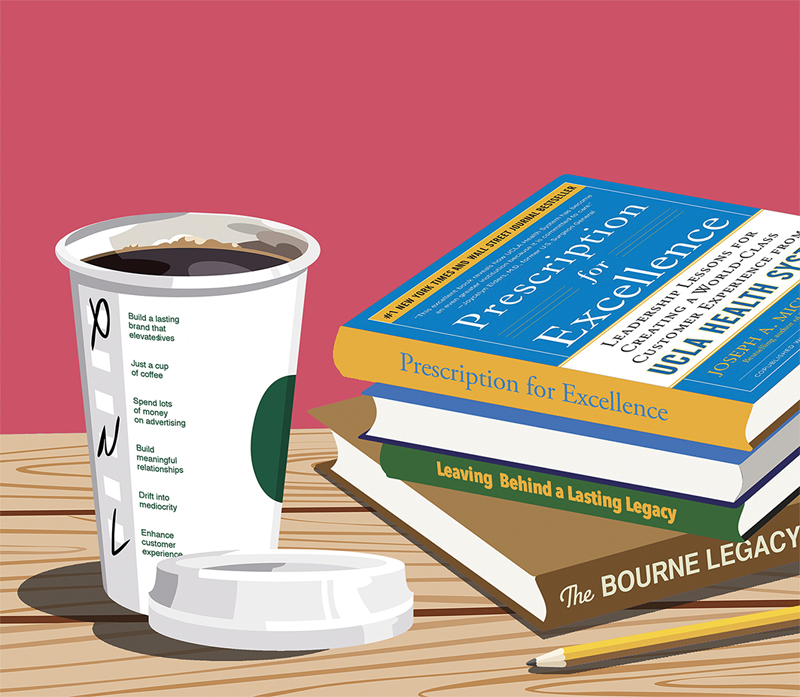Shape And Leave A Legacy Of Significance

Writer Irving Kristol once suggested that leaders need to define “one big thing” in their career and “stick with it. Leaders who had one very big idea and one big commitment are the ones who leave a legacy”.
I would suggest that we have room for “one big thing” in our professional life, as well as in our personal life.
I’ve been fortunate to consult with individuals in both the public and private sectors. As part of my process, I ask people to craft and publish their professional and their personal “legacy statements”.
Here are two examples from leaders with whom I’ve worked.
Howard Schultz, Chairman and CEO, Starbucks, shared that he wants “to build a lasting brand that elevates lives – one cup at a time”.
Facing the 2008 financial crisis, Howard acted consistently with his desired legacy, and re-ignited a focus for creating inspirational moments in the lives of customers as well as a commitment to coffee excellence. He closed 7,100 stores for three hours to re-train 135,000 employees on the “Art of Espresso”. Starbucks did more than “last” through the downturn – it has enjoyed sustained growth and record profitability.
Dr David Feinberg, former CEO, University of California Los Angeles (UCLA) Health System, sought “to lead a revolution that puts care back in healthcare”.
David inherited an outstanding public healthcare system at UCLA, recognised for educational excellence, medical breakthroughs and cutting-edge clinical outcomes. But it was not known for “warmth” or “patient ease”. Patients used to offer feedback like: “The fact that I’m alive from a solid organ transplant is a miracle, but the way I was treated makes me wonder if it was worth what I went through.”

Through his sustained focus, David “led a revolution” – now UCLA has the highest levels of patient satisfaction among all academic/research hospitals in the US.
Both leaders realise that excellence requires a disciplined focus towards an overarching objective. To have a lasting impact from our efforts, we must define our destination and be willing to say no to projects that distract from our ultimate goal.
As leaders, we have many ways to be successful. To maximise effectiveness, we must find the intersection between our personal strengths and our organisation’s most critical needs and opportunities. In keeping with your organisation’s mission, vision and values, a declaration of your strategic priority will help your team understand how they can work with you to achieve the greatest impact.
On a more personal level, I have experienced the value of declaring and committing to leave a legacy. After dating a woman named Nora for a year, she asked me: “What great things will we accomplish together?” Being commitment-phobic at the time, I kept avoiding the question until she relocated. Suffice it to say, I followed her and we crafted a humble “personal legacy statement”.
Nora and I decided that after we married, we would “raise two children who will leave the world better than they found it”. During our children’s adolescent rebellions, we feared we were off-track. That changed with time. In fact, when Nora’s breast cancer metastasised, my children responded amazingly. My son even quit his dream job to relocate and care for his mother till her death. Thanks to Nora, our legacy has taken shape.
It’s your turn to shape both a personal and professional legacy statement:
- Start by looking at your personal strengths. (e.g., Do you excel at strategy, operations, communication?)
- Do a thorough SWOT (strengths, weaknesses, opportunities, threats) analysis of your organisation.
- Define an overarching strategic target that blends your strengths, passion and important organisational needs.
- Take the time to define why it is important to pursue your defined objective.
- Share your strategic priority consistently such that it becomes a “rallying cry”, leading to your lasting legacy.
So, what will your legacy be? Write it down now and share it with someone you trust so they can check in with you about it. Most importantly, live into a legacy of SIGNIFICANCE both professionally and personally!
Dr Joseph Michelli is an international public speaker and organisational consultant. He is a No. 1 New York Times Best Selling author and his newest book, Driven to Delight: Delivering World-Class Customer Experience the Mercedes-Benz Way, will be available in December 2015. Learn more about his work at https://www.josephmichelli.com/
- POSTED ON
Sep 3, 2015
- TEXT BY
Dr Joseph Michelli
-
Deep Dive
Unravelling The Mysteries Of Motivation








